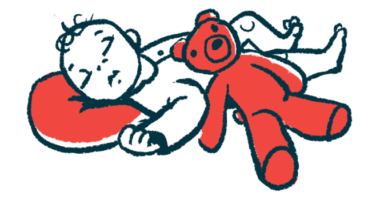Gain Therapeutics and Partners Win €1.4M Grant to Develop Treatments for Gaucher and Other Diseases

A €1.4 million grant from the Eurostars-2 program, with funding from others, will support Gain Therapeutics and its partners in developing treatment candidates for Gaucher disease, Parkinson’s, and GM1 gangliosidosis.
The grant, worth about $1.57 million, supports ongoing research by Gain and its collaborators Maurizio Molinari, PhD — with the Institute for Research in Biomedicine (IRB) — both based in Switzerland, and Neuro-Sys in France. Funding came from Eurostars-2, together with Horizon 2020, the European Union’s nearly €80 billion ($90 billion) research and innovation program, and Innosuisse – Swiss Innovation Agency.
Gain, whose headquarters are in Lugano, focuses on rare diseases of the central nervous system (the brain and spinal cord) that are driven by misfolded or incorrect shaped lysosomal enzymes and that have no available treatments.
The company’s SEE-Tx technology platform has identified a new series of chaperone proteins that stabilize misfolding mutations to restore the protein’s enzymatic activity. This mechanism was validated with GLB1, the key enzyme in GM1-gangliosidosis and morquio B.
Cell experiments have indicated that these new compounds lessen the accumulation of toxic substances. Compared to most pharmacological chaperones, Gain’s molecules are seen to be more selective and have a longer therapeutic window, due to not targeting the enzyme’s active site and not suppressing its activity.
“We are proud of the Eurostars-2 grant notification,” Manolo Bellotto, PhD, Gain’s general manager, said in a press release.
Bellotto said this “balanced yet ambitious project” was favored due to the high unmet medical need it addresses, its platform’s focus on developing small molecules able to enter the brain and restore misfolded lysosomal enzymes, and “a clearly defined path into a significant market.”
The collaborative effort ranked No. 2 among more than 325 eligible applications from across Europe. According to Molinari, who is also a professor at the École Polytechnique Fédérale de Lausanne, “the excellent ranking … is also a rewarding recognition for our long-standing activity in the field of rare diseases.”
At IRB, Molinari is the leader of a research group focusing on protein folding — the process through which a protein acquires its 3D functional shape — and quality control, and how its impairments may lead to severe disease.
“The transnational collaboration with Gain Therapeutics and Neuro-Sys will hopefully offer the opportunity to translate [this research] into the clinics,” he said.
Noelle Callizot, Neuro-Sys’ chief scientific officer and general manager, said “the innovative scientific approach of the project has strongly motivated us to get involved.”
Callizot added that the application’s “remarkable ranking” is proof of Europe’s interest in treating rare diseases, and that this “ambitious project” represents “a great opportunity” to better understand the mechanisms driving orphan diseases.



